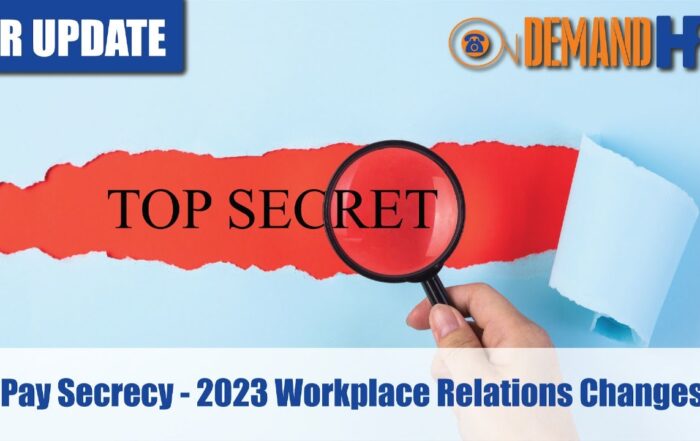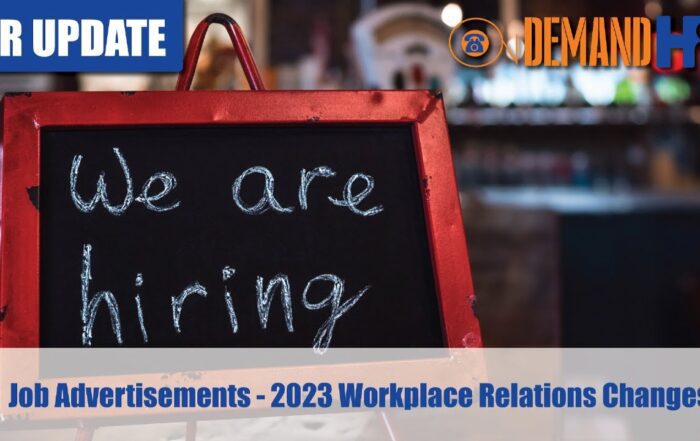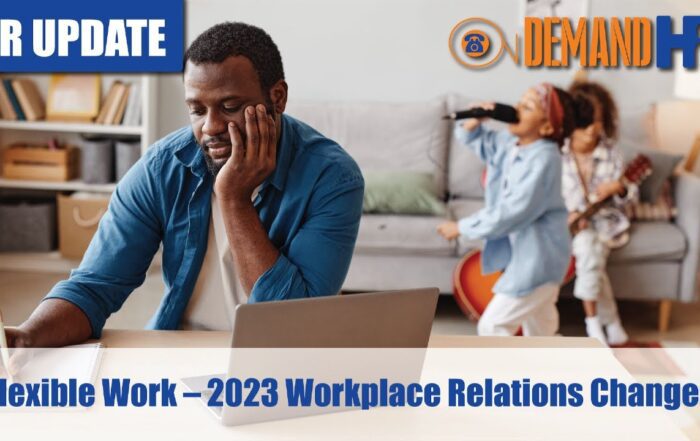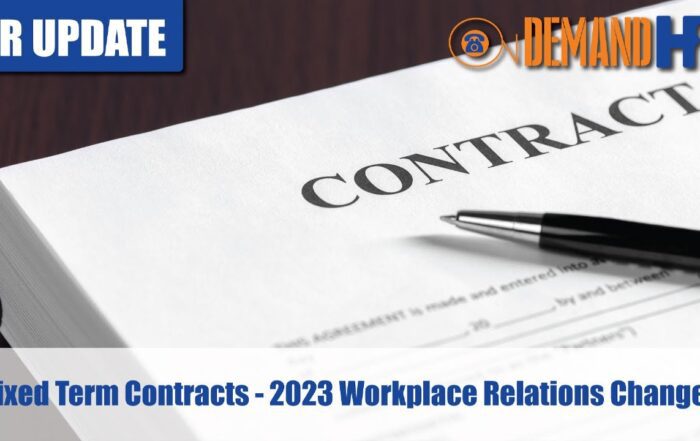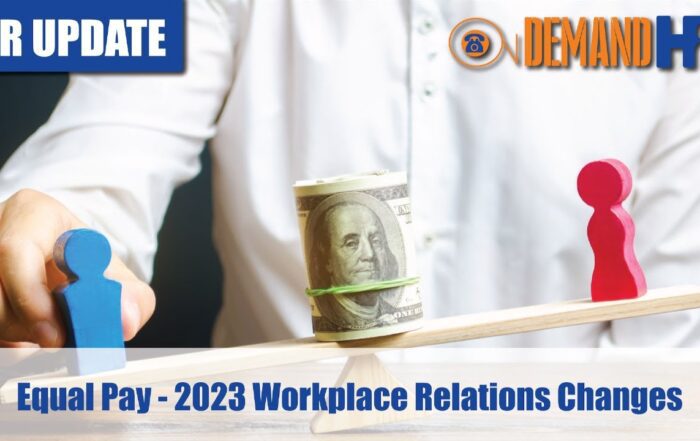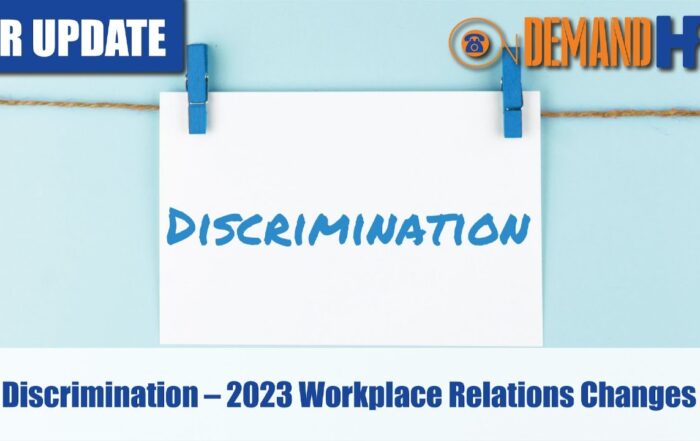Proposed Workplace Relations Compliance Changes
Legislation currently being debated in parliment in early 2021 is propoposing to increase Workplace Relations compliance requirements an introduce increased penalties for non compliance for Australian businesses. Find out how your business will be impacted.
Please see below for a full transcript of the video.
Share the HR or workplace relations challenge facing your business and one of our experienced consultants will be in touch within 24 hours with a strategic action plan or discover the best strategy yourself by accessing out free online training library.
Transcript
0:00
I’ll move on to compliance. So there is a little bit of talk about compliance. This is sort of I find this a little bit strange to be quite honest, I’m not sure why the government in one hand is using, you’re looking at IR reform in one sense, but then wanting to jack up penalties in the other sense, particularly in the other time, particularly the times that we are in at the moment. Whether this is some way of getting the bill through with the support of other parties. I’m not sure what the tactical side of this is. But essentially, they’re looking at increasing small business fines for under payments for up to 99,000 from 66. Medium Business, they’re looking at, you know, up to two times the benefit obtained of the underpayment or 99, whichever is the higher. Large businesses three times benefit, or 666,000, whichever is the higher 50% increase in fines for Sham contracting arrangements and severe cases can attract up to four years jail time.
So what I would say on this before everyone gets really, really alarmed around this room is that typically in the past the Fair Work Ombudsman have only issued penalties in fairly extreme cases. So trivial underpayment, certainly, you know, you’re not going to get fines or penalties in those situations. If you’re making an attempt to do the right thing, then, you know, there’s a good chance that there’s a very high likelihood there’s not going to be fines and penalties.
It’s when you look at these cases, like when there’s repeat offenses in particular, particularly if they’re severe offenses. And there’s been a couple of cases. I think there’s an easy payroll case where they ignored warnings from the Ombudsman about certain underpayments and they facilitated under payments for a particular client and they ended up being fined as a result of facilitating those under payments after they were already warned by the Fair Work Ombudsman about it. And they were fairly significant under payments from from memory. So the only thing that worries me about this compliance part is that whether the you know, whether the ambulance chasing lawyers that we will see around the place will start using this jail time as a means of scaring businesses into settling underpayment claims, you know, whether they’ll start saying to employers, well, you know, pay this and we think this is severe and could attract, you know, jail time and whilst that might be, you know, hyperbole whether they’ll use that as a as a vehicle to leverage results remains to be seen. So that’s what is proposed on the compliance on the compliance front, so likely that we’ll see those sort of changes ifobviously the bill passes. So that is that.

